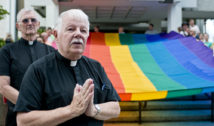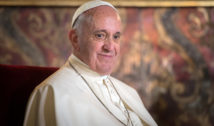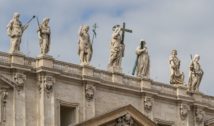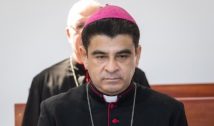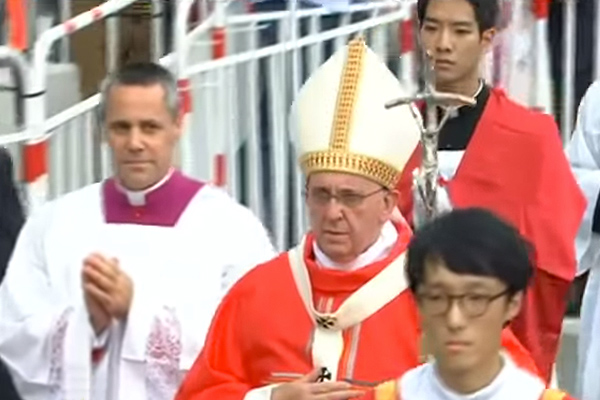
Pope Francis’ visit to South Korea: Everything You Need to Know
- By Krista R. Burdine --
- 18 Aug 2014 --

Pope Francis wins the hearts and minds of Koreans during his first trip to Asia with humility, English, and prayer.
In his first official appearance in Asia, Pope Francis offered support to the fast-growing Catholic community in South Korea. Starting soon after his arrival, he delivered a speech for Asian Youth Day, visited handicapped children, offered prayers for the nearly 300 victims of the capsized ferry in Sewol, held a service to beatify 124 Korean martyrs, and met privately with surviving victims of child prostitution from World War II.
Pope Francis forges his own path
Despite the busy schedule planned for this 5-day trip, the pope continued a trend he has been creating since he took office, in which the interesting stories of this trip extended beyond the scheduled ceremonies. First, the pontiff chose a compact, locally built Kia Soul hatchback to serve as his transport from the airport to the formal welcome ceremony in Seoul. This unique procession garnered more attention from the excited crowds gathered along the route than the fact he delivered his first public speech in English at the welcome ceremony. He practiced his English in advance of this visit so as to communicate directly to Asian youth without a translator. Symbolically, this was to enable all Asians to feel a greater connection with him.
Friday, Pope Francis traveled from Seoul to Daejeon on public transportation. About 500 passengers shared the bullet train ride with him, which again offered everyday people the opportunity to feel more connected to this increasingly popular religious leader. Later, after praying with families of victims of the ferry sinking, he accepted a yellow memorial ribbon which he wore the rest of the day in solidarity. He then made time to baptize the father of one of the victims on Sunday.
During his appearance at Asian Youth Day, the pontiff posed for selfies with some of the attendees. Before the end of his trip, at the start of a homily urging forgiveness and reconciliation between North and South Korea, he accepted a pin of a butterfly from one of seven surviving women who had been enslaved and forced into prostitution during World War II, and wore it throughout the Mass.
It seems that whether Catholic or nonreligious, rich and famous or poor and disenfranchised, the public approves of everything this pope does. He is quickly building a reputation strong enough to make his voice credible for any cause he might choose to support.
A surprising area of discord
The small-but-growing South Korean Catholic community boasts the unique distinction of growing faster than almost anywhere else right now, outstripping Protestant growth on the peninsula. The pope praised this growth, saying Saturday that “The Christian faith was not brought to the shores of Korea through missionaries.” Rather, he said, “It entered through the hearts and minds of the Korean people themselves.”
But Korean Protestants remain more suspicious of the pope and his intentions. While the Protestant denominations overtly expressed pleasure and support for the pope’s visit, little fanfare over the visit could be found in local Protestant news sources. Ongoing tensions between the two Christian groups, constantly vying for shares of the 29% Christian Korean population, simmer more closely to the surface during times like this papal visit.
At the end of his trip, the pope addressed these tensions, as well as those dividing North and South Koreans, by calling for forgiveness and reconciliation. He urged his audience to pray, “For the emergence of new opportunities for dialogue, encounter and the resolution of differences, for continued generosity in providing humanitarian assistance to those in need, and for an ever greater recognition that all Koreans are brothers and sisters, members of one family, one people.”
Pope Francis has already demonstrated an ability to disarm those who would distrust his motives, and win support to his ecumenical cause. If he can ease tensions among Christians on the Korean Peninsula, or between citizens of the divided nation, his first Asia visit may have even further reaching positive consequences than hoped.











